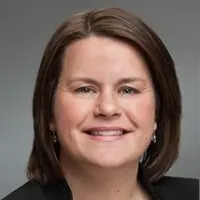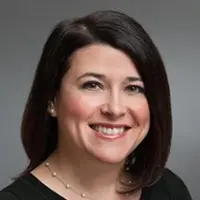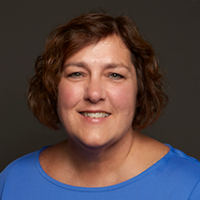About Crossroads – Back Cove Women’s Residential
Latest Reviews
Rehab Score
Gallery
Other Forms of Payment
Medicaid is a state based program that helps lower-income individuals and families pay for healthcare. Medicaid covers addiction treatment so those enrolled can use their coverage to pay for rehab. When a program accepts Medicaid the client often pays very little or nothing out of their own pocket.
Private insurance refers to any kind of healthcare coverage that isn't from the state or federal government. This includes individual and family plans offered by an employer or purchased from the Insurance Marketplace. Every plan will have different requirements and out of pocket costs so be sure to get the full details before you start treatment.
Self-pay involves paying for treatment out of your own pocket. You can use savings or credit, get a personal loan, or receive help from family and friends to fund your treatment. If you don't have insurance or your insurance plan doesn't cover a specific program, self-pay can help ensure you still get the care you need.
Medicare is a federal program that provides health insurance for those 65 and older. It also serves people under 65 with chronic and disabling health challenges. To use Medicare for addiction treatment you need to find a program that accepts Medicare and is in network with your plan. Out of pocket costs and preauthorization requirements vary, so always check with your provider.
Addiction Treatments
Levels of Care
Residential treatment programs are those that offer housing and meals in addition to substance abuse treatment. Rehab facilities that offer residential treatment allow patients to focus solely on recovery, in an environment totally separate from their lives. Some rehab centers specialize in short-term residential treatment (a few days to a week or two), while others solely provide treatment on a long-term basis (several weeks to months). Some offer both, and tailor treatment to the patient's individual requirements.
Over the years, 12-step work has become an integral part of addiction recovery. Women in the Back Cove Women’s Residential Program attend daily meetings either in-house or within the community. This helps to familiarize them with the program and start building connections with Back Cove peers and the recovery community. Attendance at 12-step meetings typically becomes a regular part of recovery even after residential treatment, so early involvement sets women up for success after treatment. Family members also become familiar with the program through Al-Anon meetings held during family days.
Recovery is a lifelong process taken one day at a time. To support their clients in maintaining and staying active in their recovery, Crossroads created the Crossroads Alumni Association (CAA). There are local chapter meetings for graduates of the Back Cove Women’s Residential Program and a variety of CAA-sponsored events throughout the year. Current and future alumni can engage in fellowship and fundraising activities to support their recovery and the Crossroads program. In addition, outpatient clinicians are available for follow-up care.
Treatments
The goal of treatment for alcoholism is abstinence. Those with poor social support, poor motivation, or psychiatric disorders tend to relapse within a few years of treatment. For these people, success is measured by longer periods of abstinence, reduced use of alcohol, better health, and improved social functioning. Recovery and Maintenance are usually based on 12 step programs and AA meetings.
Drug rehab in Maine is the process of helping someone learn how to live without the use of substances. Professional staff provide treatment to address the various issues of addiction. Methods often involve medication, counseling, and evidence-based therapies.
Dual diagnosis is also commonly referred to as having co-occurring disorders. Simply put, this means that a substance use disorder and mental health disorder are present together. A client may be struggling with drug addiction or alcoholism, but this could be in conjunction with depression, anxiety, bipolar disorder, obsessive compulsive disorder (OCD), post-traumatic stress disorder (PTSD) or another mental health condition. The presence of these co-occurring disorders can make achieving and maintaining recovery more difficult due to the interrelated nature of the conditions. Dual diagnosis treatment at Crossroads provides clients with the comprehensive care they need to manage both substance use and mental health disorders. A tailored plan is developed that addresses the physical, mental, emotional, and social impact that a dual diagnosis can have on a client’s life
Substance rehabs focus on helping individuals recover from substance abuse, including alcohol and drug addiction (both illegal and prescription drugs). They often include the opportunity to engage in both individual as well as group therapy.
Programs
Adult rehab programs include therapies tailored to each client's specific needs, goals, and recovery progress. They are tailored to the specific challenges adult clients may face, including family and work pressures and commitments. From inpatient and residential treatment to various levels of outpatient services, there are many options available. Some facilities also help adults work through co-occurring conditions, like anxiety, that can accompany addiction.
Young adulthood can be an exciting, yet difficult, time of transition. Individuals in their late teens to mid-20s face unique stressors related to school, jobs, families, and social circles, which can lead to a rise in substance use. Rehab centers with dedicated young adult programs will include activities and amenities that cater to this age group, with an emphasis on specialized counseling, peer socialization, and ongoing aftercare.
Clinical Services
Back Cove Women’s Residential Program also offers Equine Assisted Therapy once a week. Interacting with the horses allows women to understand their own behaviors and relationships, build trust and overcome fears. Horses can teach them to read non-verbal cues more effectively, become more assertive, exert leadership, solve problems and work as part of a team.
In addition to individual and group therapy sessions and wellness services, Back Cove Women’s Residential Program also offers women an assortment of recreational activities. The facility is within walking distance to Back Cove trail, a 4.2 mile loop where women can walk or run while taking in the Portland skyline. There are also seasonal activities offered to promote physical activity and positive mental health.
Addiction and behavioral health issues affect more than just the person in treatment. They affect the entire family. Back Cove encourages family involvement and provides support to help everyone be more successful. Family members are connected with a family clinician who provides weekly updates during treatment and follow-up for six months after treatment has been completed. Family members are an integral part of recovery and are supported in understanding how a loved one’s addiction has affected them and how they can be proactive in recovery and set healthy boundaries. Group therapy sessions with family members of clients are offered, as well as Al-Anon meetings and family therapy sessions with their loved one.
Communication and support are two key areas of addiction recovery. Through group therapy and relationship building activities, women learn how to express themselves more effectively and build connections with staff, other clients, and family members. They can feel safe in a judgment-free, respectful environment surrounded by other women. Group therapy encourages women to share their stories so that they realize they are not alone and others have gone through similar situations. Group therapy topics include early recovery skills, mental health topics, relapse prevention, managing emotions, the medical aspects of chemical dependency, trauma, nutrition for sobriety and spirituality. With a vast array of topics and supportive engagement, women develop a greater sense of self and respect for other women.
In individual therapy, a patient meets one-on-one with a trained psychologist or counselor. Therapy is a pivotal part of effective substance abuse treatment, as it often covers root causes of addiction, including challenges faced by the patient in their social, family, and work/school life.
Women will work closely with a registered dietitian to address their nutritional needs. The dietitian will create a well-balanced, seasonal menu that meets the needs of women in early recovery. Furthermore, their dietitians run a group on healthy eating in recovery to support continued good nutrition and healthy decision making.
Trauma therapy addresses traumatic incidents from a client's past that are likely affecting their present-day experience. Trauma is often one of the primary triggers and potential causes of addiction, and can stem from child sexual abuse, domestic violence, having a parent with a mental illness, losing one or both parents at a young age, teenage or adult sexual assault, or any number of other factors. The purpose of trauma therapy is to allow a patient to process trauma and move through and past it, with the help of trained and compassionate mental health professionals.
Amenities
-
Residential Setting
-
Yoga Studio
-
Private Rooms
Staff & Accreditations
Staff

Shannon Trainor, LCSW, CCS
CEO

Mary Anne Roy, Psy.D., CCS
Chief Clinical Officer

Jonathan C. Fellers, MD
Medical Director

Deborah M. Giacomantonio, CPA
Finance Director
Accreditations

The Commission on Accreditation of Rehabilitation Facilities (CARF) is a non-profit organization that specifically accredits rehab organizations. Founded in 1966, CARF's, mission is to help service providers like rehab facilities maintain high standards of care.
CARF Accreditation: Yes

The National Association of Addiction Treatment Providers (NAATP) is a professional association that represents organizations in the field of addiction services. Founded in 1978, NAATP's mission is to advance addiction services and ensure that high-quality addiction treatment is available and accessible.
NAATP Member: Yes
Contact Information
71 US Route One
Suite E
Scarborough, ME 04074
